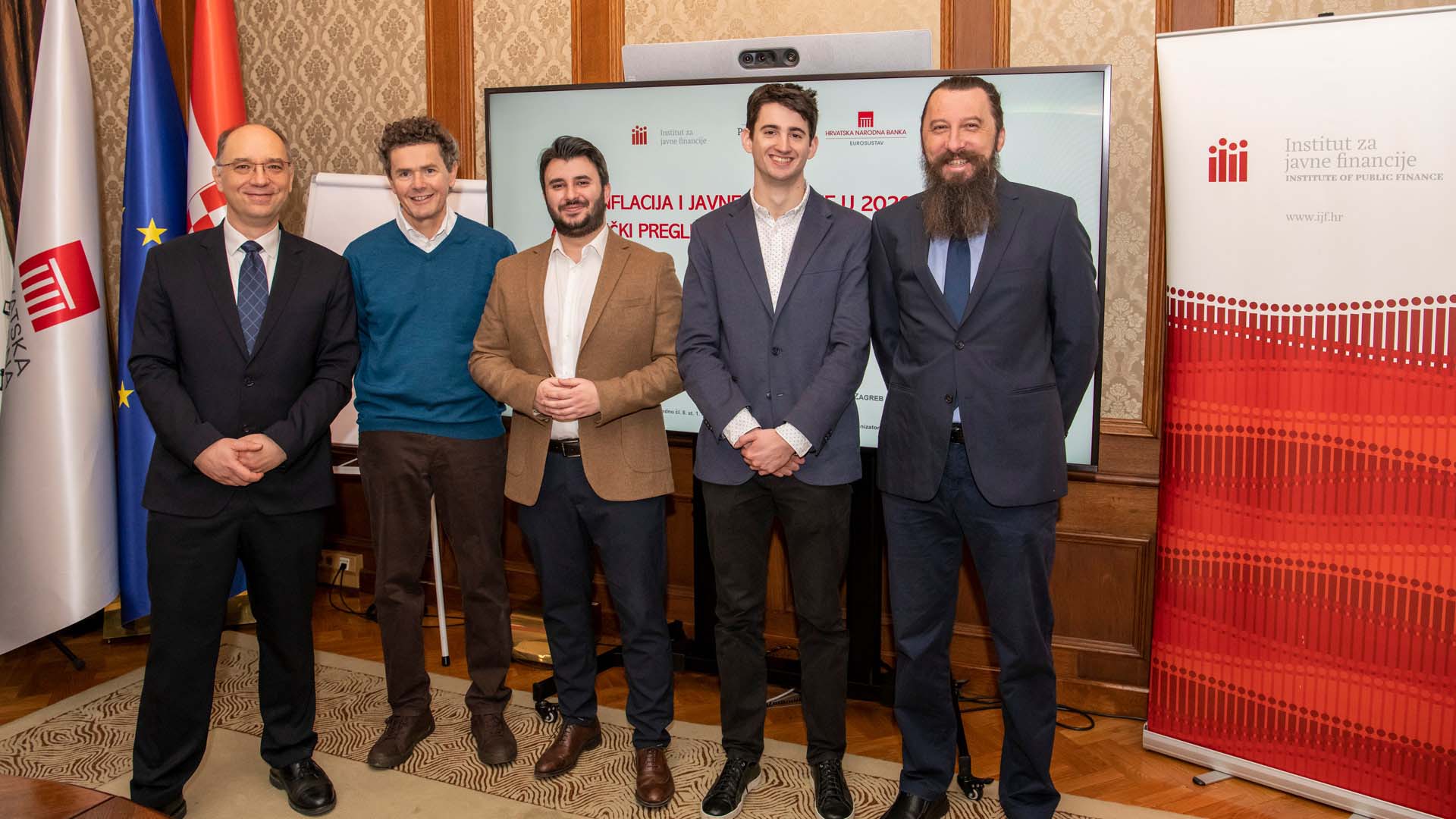
Maroje Lang, Dubravko Mihaljek, Frane Banić, Pave Rebić and Dominik Ivan Pripužić
At a joint seminar of the Institute of Public Finances and the Croatian National Bank (HNB) held in Zagreb on 1 February 2024, Dubravko Mihaljek (Bank for International Settlements) and Frane Banić, Dominik Ivan Pripužić and Pave Rebić (HNB) presented an analytical overview of the effects of inflation on public finances and an empirical study on the effects of inflation on fiscal positions in Croatia. The presentations were based on their papers published in a thematic issue of the journal Public Sector Economics (no. 4/2023) entitled Inflation and public finances in the 2020s.
The last time inflation and public finances were intensely discussed as a joint topic of economic research and policy analysis dates back to half a century ago. In the decades that followed, inflation and public finances were rarely analysed jointly. But the widespread rise in inflation since mid-2021 has confronted a new generation of policymakers with the powerful interactions between inflation and public finances that once dominated the economic discourse.
The main argument that Dubravko Mihaljek developed in his presentation is that high inflation initially boosts tax revenues faster than expenditure, which creates an impression of healthy public finances. Greater sensitivity of tax revenues to inflation is partly structural, as modern tax systems have become much more reliant on VAT, and as digital technology facilitates tax collection and strengthens tax compliance. However, public spending also catches up quickly when inflation is persistently high, so the initial positive effect of inflation on fiscal positions quickly dissipates. The main risk in this situation is that the impression of abundant tax revenues and the initially slower adjustment of expenditure could lead politicians to advocate new public spending programmes or tax cuts, which could be difficult to reverse and would damage public finances in the longer term.
Frane Banić, Dominik Ivan Pripužić and Pave Rebić presented an empirical model in which they added inflation shocks to standard fiscal reaction functions. They found evidence that inflation surprises indeed had a favourable effect on the primary balance in Croatia in the short term. They explained this effect by the high buoyancy of nominal tax bases with respect to inflation on the one hand, and the absence of formal indexation of public expenditure on the other. In the medium-term, however, inflation is likely to have a negative effect on the primary balance by raising government expenditure more than tax revenues. One thus cannot take too much comfort from the current favourable state of public finances. Without consolidation, Croatia`s fiscal position could deteriorate in the medium term if inflation and policy rates stay relatively elevated.
The seminar was moderated by Maroje Lang, Chief Advisor in the Research Area of the HNB and Deputy Head of the Croatian Fiscal Council.
